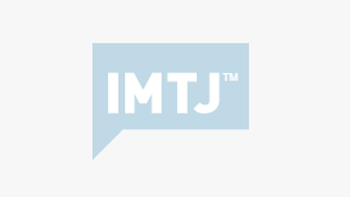Joint Commission International (JCI) and the Korean Hospital Association (KHA) have agreed to establish programmes focused on improving the quality and safety of health care services in South Korea. JCI has worked with health care organizations, ministries of health, and global organizations in more than 80 countries.
Joint Commission International (JCI) and the Korean Hospital Association (KHA) have agreed to establish programmes focused on improving the quality and safety of health care services in South Korea.
JCI has worked with health care organizations, ministries of health, and global organizations in more than 80 countries. It focuses on improving the safety of patient care through the provision of accreditation and certification services as well as through advisory and educational services aimed at helping organizations implement practical and sustainable solutions. JCI is accredited by the International Society for Quality in Health Care (ISQua).
KHA and JCI will assist hospitals in Korea as they strive to achieve a level of quality recognized worldwide. Together JCI and the KHA will:
* Establish an ongoing series of educational programs for KHA member hospitals.
* Translate and publish the Joint Commission International Accreditation Standards for Hospitals, Third Edition, into Korean.
* Establish a help desk for KHA members to answer their questions about JCI standards, accreditation and service.
* Distribute information on JCI standards for all accreditation programs via the KHA information network.
* Develop and promote the use of patient safety solutions for the benefit of South Korean patients and health professionals.
“Working with JCI will help the Korean Hospital Association raise the profile of health care in South Korea, and bring international recognition to the quality of care in South Korean hospitals. Improving the quality of health care and patient safety in South Korea is a strategic initiative of the KHA.”
says Hoon Sang Chi of the Korean Hospital Association.
More than 246 public and private health care organizations in 36 countries have been accredited by JCI. Only one hospital in South Korea has achieved JCI accreditation-Severance Hospital, Yonsei University College of Medicine, Seoul. Others are working towards JCI accreditation.
With strong government support, South Korea is on the way to become a leading medical tourism destination in Asia. The South Korean government has introduced a new category of visa for tourists who visit the country for medical reasons. The foreign medical tourist visa, M, is adopted in a bid to boost the nation’s medical tourism industry as local hospitals and medical institutes asked the government to simplify the visa issuance process. The new visa is issued in two forms, C3 (M), a 90-day visa for those with short-term treatment purposes, and G1 (M), a one-year visa for those who need long-term care.
A law change allowing Korean hospitals to market services to foreigners and team up with travel agents has major Seoul medical institutions offering packages to two million gyopo, ethnic Koreans living overseas, promising them faster and more affordable service
According to a new RNCOS research report, “Emerging Medical Tourism in South Korea”, government initiatives to promote the country as a medical tourism hub will fuel the growth in the South Korean medical tourism industry. Despite the gloomy outlook for the world economy, medical tourism industry in South Korea has witnessed an impressive growth of more than 55% in 2008 over the same period last year. Due to the global recession, South Korea is now 30% cheaper to visit than it was last year.








 ©2024 All rights reserved LaingBuisson
©2024 All rights reserved LaingBuisson 


